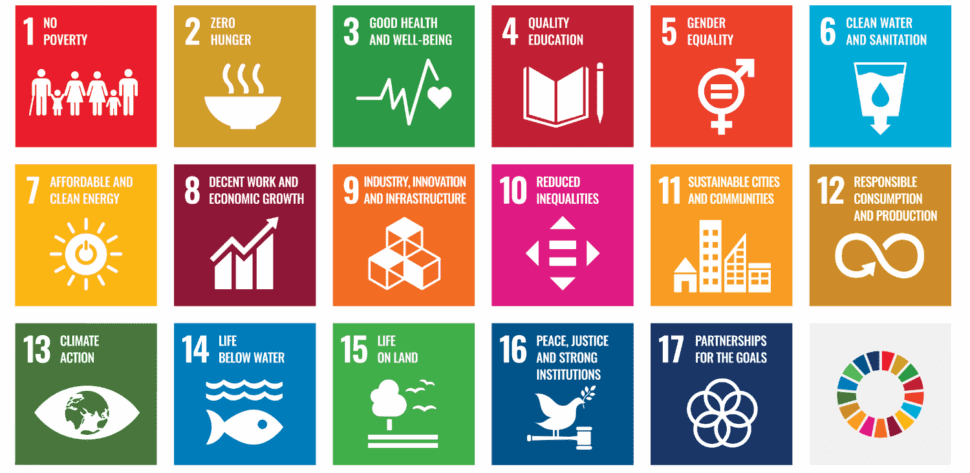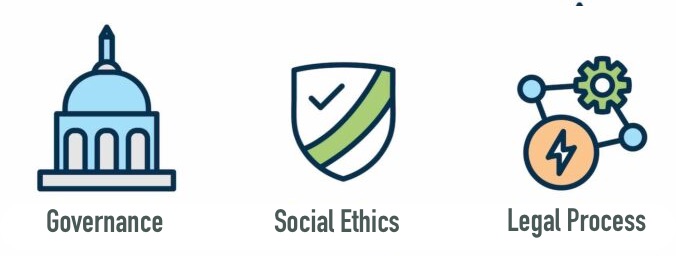COMMERCIAL PROPERTIES
STAY UP TO DATE
Useful links
Packington Estate ESG Policy 2025

Developing and maintaining an ESG (Environmental, Social, and Governance) strategy for a country estate involves considering various unique contexts, including historical aspects as well as the cultural significance of such properties, and their custodianship; past, present, and future, to preserve these locations for future generations to come, across all the three aspects of such an initiative.
Packington Estate has four overarching pillars that drive the spirit and principles of the Estate and provide the building blocks for all the Estate’s businesses, operations and projects. These four pillars are Stewardship, Sustainability, Wellbeing and Restoration.
The Estate is in a transitional phase moving away from more traditional, methodologies of Estate management to a progressive strategy, in line with current business practises and procedures. Much of the Estate is undergoing such an evolution to more sustainable operations. This covers every venture and project, from Estate stewardship all the way through to the Board Room.
Packington’s ESG policy is bolstered by its actionable and tangible achievements, framed and guided by the United Nations Sustainable Development Goals (the SDGs or Global Goals). We all know that big global challenges need bold action, from every corner. This initiative was unanimously voted into being by all of the 197 member Nations of the United Nations, and this was formalised with an Act named Resolution Agenda 30, to build a greener, fairer, better world by 2030 and everyone has a role to play in helping achieve these Global Goals. Packington Estate is utilising the SDGs across the Estate as a guideline to set out its pathway for all future prospects and developing over time, an equitable, sustainable, biodiverse, conscientious, and healthy future.
Environmental (E) Considerations

Environmentally-friendly Land Management: Packington has implemented sustainable land management practices that prioritise biodiversity, soil health, and water conservation. This shall involve rewilding certain areas, planting native vegetation, and avoiding the use of harmful pesticides, herbicides or fertilizers on its Regenerative Farms and within the Gardens, with the aim of reducing the use of artificial products across the wider Estate.
- Renewable Energy Integration: Explore the potential opportunities for on-site renewable energy sources, such as heat source, solar power, biomass and wind turbines. This can reduce the Estate’s carbon footprint and enhance energy resilience. The opportunity for the establishment of an Energy Park within the Estate is currently being explored.
- Historical Preservation: Develop a plan for the maintenance, conservation and sympathetic restoration of the historical buildings, such as the Hall, Church and Stables, as well as landscapes, combining modern, environmental practices with preservation efforts to ensure the legacy and longevity of the Estate.
- Tree Planting Schemes: Packington is committed to soil and tree health, and as such has an extensive tree planting scheme planned across the Estate, with up to 10,000 trees currently planned for planting.
Social (S) Initiatives

- Community Engagement: The Estate is fostering relationships with local communities by providing access to parts of the Estate to the use and organising community events such as craft workshops, carol services, fun runs, dog trials and open garden days. Alongside this, the Estate has developed an approved suppliers’ process and collaboration with local businesses, partners and charities, in support of local community businesses.
- Educational Programs: The Estate intends to establish educational programs and workshops for both children and adults along with guided tours to showcase the Estate’s history, conservation efforts, and sustainable practices. The Estate wants to raise awareness and share knowledge with our visitors and the wider community.
- Cultural Heritage Preservation: Promote the preservation of cultural heritage, including historical artifacts, archives, and traditions of the Estate. Engage with local historians and cultural experts to ensure authenticity and respect for the Estate’s historic and future legacy.
Governance (G) Strategies
- Transparency and Accountability: The Estate emphasises transparency in its operations, governance structures, and decision-making processes. The Estate shall regularly review its ESG initiatives and performance in order to build trust and confidence, including the update of this Policy document.
- Compliance with Heritage Regulations: The Estate shall ensure compliance with heritage and conservation regulations and Acts to protect the Estate’s historical significance while aligning with modern sustainability standards.
- Stakeholder Inclusivity: By involving local communities, team members, and other stakeholders in decision-making processes related to the Estate’s development, thereby creating an accountable and inclusive process for all.
Preservation of Natural and Historic Assets
- Wildlife Conservation: The Estate shall implement measures to protect and enhance biodiversity within the Estate. This shall include habitat restoration and tree planting, development of the Estate’s Nature Reserve, wildlife corridors, and the creation of biodiverse, environmental areas, such as the Estate’s Rewilding project.
- Historic Garden Preservation: The Estate shall maintain and, where appropriate, restore historic gardens using sustainable practices, such as within the Walled Gardens. The Estate shall utilise organic and sustainable gardening methods as far as possible and involve local communities in garden-related events and activities.
Heritage Tourism and Economic Diversification
- Tourism Development: Strategically develop tourism initiatives that highlight the Estate’s cultural and environmental assets. This can contribute to the wider and more local economies while raising awareness about sustainable practices. These initiatives involve EcoTourism within the Rewilding and Nature Reserve areas with potential for overnight accommodation, as well as daytime activities and events within the Parkland of the Estate.
- Diversification of Income Streams: Explore further opportunities for sustainable and regenerative agriculture, as is already on-going, renewable energy projects, such as Somers Country Park, and hosting events that align with the Estate’s four Pillars and the Estate’s historical and environmental values.
Team Well-being
- Training: Provide training opportunity and programs for the Estate team
- Health and Safety Measures: Implement health and safety measures to ensure the ongoing well-being of team members, contractors and visitors.
Commitment to Diversity and Equality
- We are committed to:
- Eliminating Discrimination: We will not tolerate discrimination based on age, gender, race, ethnicity, religion, disability, sexual orientation, or any other protected characteristic.
- Creating an Inclusive Environment: We strive to create an inclusive work environment where everyone feels respected and valued.
- Equal Opportunities: We provide equal opportunities for all team members, regardless of their background or characteristics.
- Recruitment and Selection
- Fair and Open Recruitment: We are committed to fair and open recruitment processes, ensuring that all candidates are assessed based on their skills, qualifications, and suitability for the role.
- Training and Development
- Equal Access to Training: All team members will have access to training and development opportunities
- Promotion and Career Development
- Merit-based Promotion: Promotion decisions will be based on merit, skills, and performance, without any form of discrimination.
- Support for Career Development: We are committed to supporting the career development of all team members.
- Harassment and Bullying
- We have a zero-tolerance policy for harassment and bullying. All team members are expected to treat each other with respect, creating a workplace free from intimidation and hostility.
- Monitoring and Review
- This policy will be regularly reviewed to ensure its effectiveness.
- Communication and Training
- This policy will be communicated to all team members.
Monitoring and Enforcement
- We shall use our best endeavours to proactively prevent and mitigate instances of non-compliance with our ESG policy. Any concerns or concerns of potential breaches, including ethical concerns in our commitment to high ethical standards, should be reported as soon as possible to your Line Manager or the Business Owners. Progress on this policy shall be reported to the Board on a regular basis. Active participation and engagement at all levels of the business is of great importance to ensure ownership of our ESG by all our teams. At the very least, we endeavour to maintain compliance with all legislative requirements.
We tailor our ESG strategy to the specific constitution and values of the Packington Estate, which is essential. Our regular monitoring and adaptation of strategies based on feedback, changing circumstances, and evolving ESG standards will contribute to the long-term success of the Estate as a sustainable and socially responsible entity.
So by adhering to this Policy, we aim to mould and create a significant enterprise, one that reflects the diversity of our rural community and promotes fairness, equality, and mutual respect.

Packington Estate & the United Nations Sustainable Development Goals
Packington Estate has four overarching pillars that drive the ethos and spirit of the Estate and provide the building blocks for our operations. These are Restoration, Stewardship, Sustainability, and Wellness. The Estate is in a transition phase moving away from conventional and out-dated practises, to more positive, forward thinking and environmentally-aware processes. Much of the Estate land and property is now undergoing an evolution towards more sustainable methods, not just in farming, but also across the board, all the way through to its corporate governance.
As part of this transition process, the Estate is a supporter and advocate of the United Nations Sustainable Development Goals. We all know that we face big challenges in today’s world: poverty, hunger, inequality and climate change are just some of the issues we need to address urgently.
Big challenges need bold action to overcome them, and that is where the Sustainable Development Goals come in, otherwise known as the “Global Goals”. These Goals are a plan agreed to by all 197 Member Nations of the UN and set in motion by Resolution Agenda 30, to build a greener, fairer, better world by 2030, and everyone has a role in helping to achieve them.
Packington Estate has taken on board a number of these Goals, and aspires to promote the Goals, generate awareness for the Goals, and encourage others to be inspired to take on the Goals in their own capacity.
To read and discover more about the Global Goals, and ways in which anyone can participate, click HERE.







